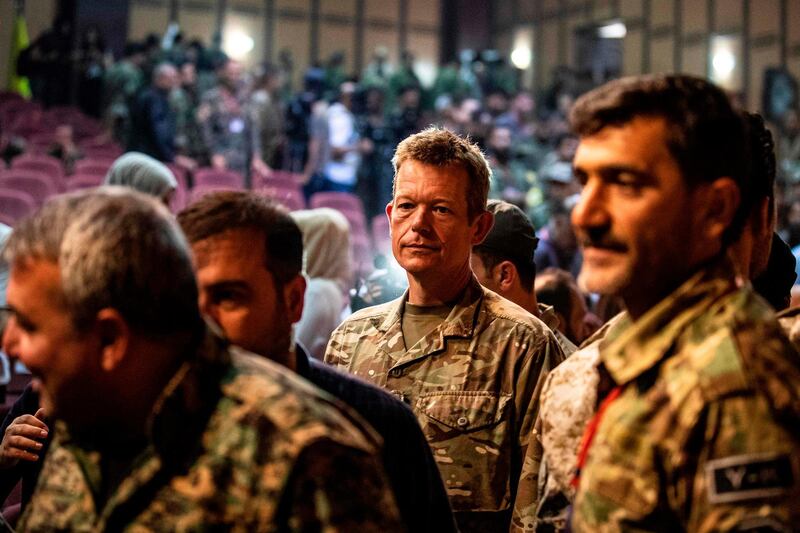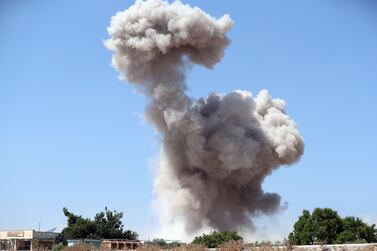Turkey sees its deal with the US to carve out a narrow security zone in northern Syria as just the beginning, two Turkish officials said, with Ankara determined to purge Kurdish fighters from a much larger section of the border region.
After weeks of difficult negotiations, the Nato allies agreed this month to jointly patrol an area stretching 125 kilometres between the Syrian towns of Tal Abyad and Ras Al Ayn, and up to 15 kilometres deep, said officials who have direct knowledge of the talks but asked not to be identified in line with regulations barring them from talking to the media.
While the agreement should allow Turkey’s military to move into northeast Syria without firing a shot, the country could unleash a unilateral incursion if the zone isn’t deepened and extended by as much as several hundred kilometres at a later date, they said.
The Pentagon did not respond to a request for comment on the Turkish plans.
Turkey has deployed 10 brigades along its frontier between the Euphrates River and the Iraqi border to confront an estimated 15,000 members of the Kurdish YPG, the officials added.
A joint Turkish-US headquarters designed to oversee a buffer zone in northern Syria became “fully operational” on Saturday, state-run Anadolu Agency reported, citing Defence Minister Hulusi Akar. A first helicopter flight over the zone, which will be off-limits to US-backed YPG forces, was planned for Saturday.
Turkish President Recep Tayyip Erdogan's government has declared the YPG — which took control of areas of northern Syria as security collapsed during that country's civil war — a mortal enemy. That's because of its links to another Kurdish separatist movement, the PKK, which Turkey has been fighting for more than three decades and is considered a terrorist organisation by the US and the European Union.
Mr Erdogan’s desire to force the militia away from Turkey’s frontier is complicated by the presence of US troops originally stationed in the region to aid the YPG in their joint fight against now largely vanquished ISIS.
Ties between Ankara and Washington have stumbled from crisis to crisis in recent years. Given the mistrust, Turkey suspects the US backs the YPG’s aspiration for some form of Kurdish self-rule, and that it’s using the group as a proxy force to defend American interests as Syria’s eight-year war nears its end with President Bashar Al Assad still in power thanks to his Russian and Iranian allies.
The Turkish-US agreement foresees the immediate withdrawal of YPG fighters from the buffer zone, with the US collecting heavy weapons it had supplied to the group, the officials said. Fortified Kurdish positions and tunnels were to be destroyed, they said. Turkey wants members of the YPG’s political wing, called the PYD, to leave the area as well.
The YPG, or People’s Protection Units, are affiliated with the Syrian Kurdish Democratic Union Party. Both deny they are enemies of Turkey and say they seek only to protect Syria’s Kurds.
The deal allows for Turkish armed drones to start surveillance flights over the zone but the US hasn't agreed to overflights by Turkish warplanes, the officials said. The US also opposes Turkey's proposal to move Ankara-backed rebels of the Free Syrian Army to the area, but did agree that refugees living in Turkey could return, they said.
Joint military patrols are expected to start within a month and Turkey will set up four bases before the creation a local security force, the officials said.
Turkish demands to be able to deploy as many troops as it considers necessary to enforce security were rebuffed, with the US agreeing only to the deployment of two Turkish soldiers for every American soldier, they added.






